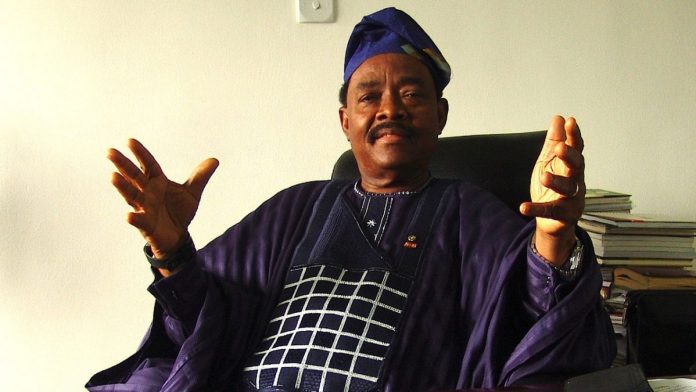The Lagos Chamber of Commerce and Industry (LCCI), has advised the Federal Government (FG) to stop incurring more debts, and consider leveraging equity for budget deficit financing instead.
LCCI’s President Michael Olawale-Cole made this submission in a statement in which he expressed his outright disapproval of the FG’s rising debt stock.
Advising the FG to discontinue Nigeria’s rising debt portfolio, Olawale-Cole said: “the fact that the most recent statistics on government revenues show a poor performance and mounting government costs makes it evident that Nigeria is going through a debt crisis.
“While the aggregate expenditure for 2022 was estimated at N17.32 trillion (total federal budget), at the end of April, a pro-rata revenue of N5.77 trillion was expected. Unfortunately, only N1.63 trillion was realized as FGN’s retained revenue as of April 2022.
“Within the same period, government’s actual spending stood at N4.72 trillion, accounted for by a whooping sum of N1.94 trillion expended on debt servicing, N1.26 trillion spent on personnel costs, and leaving only N773.63 billion for capital expenditure.”
Maintaining that it is disturbing that debt servicing alone is higher than actual retained revenue in the first four months of this year, the LCCI chief noted that “the total public debt stock of the federal government, states, and the Federal Capital Territory (FCT) rose from N39.56 trillion in December 2021 to N41.60 trillion (about $100.07 billion) by the end of the second quarter of 2022, as revealed by the Debt Management Office (DMO). Nigeria’s Debt-to-GDP ratio now stands at 23.27 percent, as against 22.43 percent on December 31, 2021.
“There are already concerns that most, if not all, of the assumptions in the Medium-Term Expenditure Framework (MTEF) 2023-2025 will be missed as we continue to experience unprecedented levels of disruptions to supply chains and agricultural production. The 2022 budget assumptions have already fallen short in terms of inflation, exchange rate, and GDP growth rate. All of these assumptions have become inadequate.”












